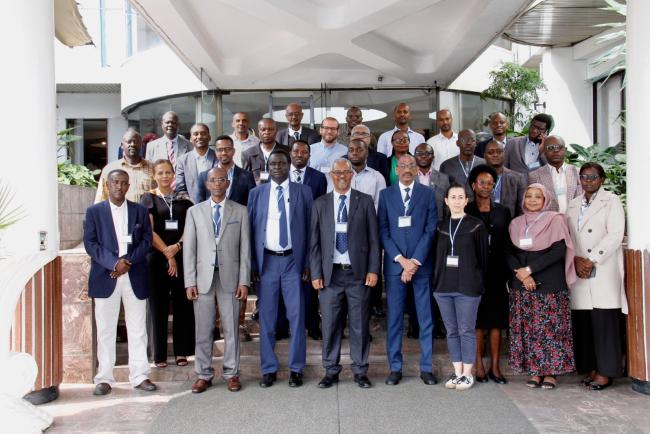𝙑𝙖𝙡𝙞𝙙𝙖𝙩𝙞𝙤𝙣 𝙒𝙤𝙧𝙠𝙨𝙝𝙤𝙥 𝙤𝙣 𝙒𝙖𝙩𝙚𝙧-𝙎𝙢𝙖𝙧𝙩 𝙄𝙧𝙧𝙞𝙜𝙖𝙩𝙞𝙤𝙣 𝙞𝙣 𝙩𝙝𝙚 𝙉𝙞𝙡𝙚 𝘽𝙖𝙨𝙞𝙣.

The validation workshop took place in Nairobi Kenya from June 21-22, 2025, with the main objective to: -
Review and validate the diagnostic assessment and EO-based guidelines for WSI.
Gather stakeholder feedback to refine the WSI Dashboard’s functionality and usability.
Since agriculture dominates water use in the Nile Basin, it accounts for over 80% of withdrawals. With agriculture being the primary consumer of freshwater, adopting water-smart irrigation techniques is essential to ensure sustainable water use, improve agricultural productivity, and mitigate the impacts of climate change. To address Nile Basin Smart Irrigation challenges and opportunities, ENTRO with funds from the World Bank is conducting a study on Water Smart Irrigation (WSI) in the Nile Basin with the main objective of using innovative information technology and Earth Observation (EO) data to improve water management and irrigation productivity in the Nile Basin includes. The main objective of the study is to leverages using Earth Observation (EO) technology and a customized digital dashboard to enhance irrigation efficiency, optimize water use, and support data-driven decision-making.
As part of this initiative, ENTRO conducted a validation workshop to give platform for the Stakeholder to review and validate diagnostic tools, guidelines, and the WSI dashboard.
The Validation workshop brings together 31 participants, including (TWG, ENSAP/TAC, Resource Persons, NBI representatives and Consultant).
During the workshop Presentations and demonstrations took places with Interactive sessions in addition to that Stakeholder Validation took place with thoroughly discussions, usability testing, and feedback sessions.